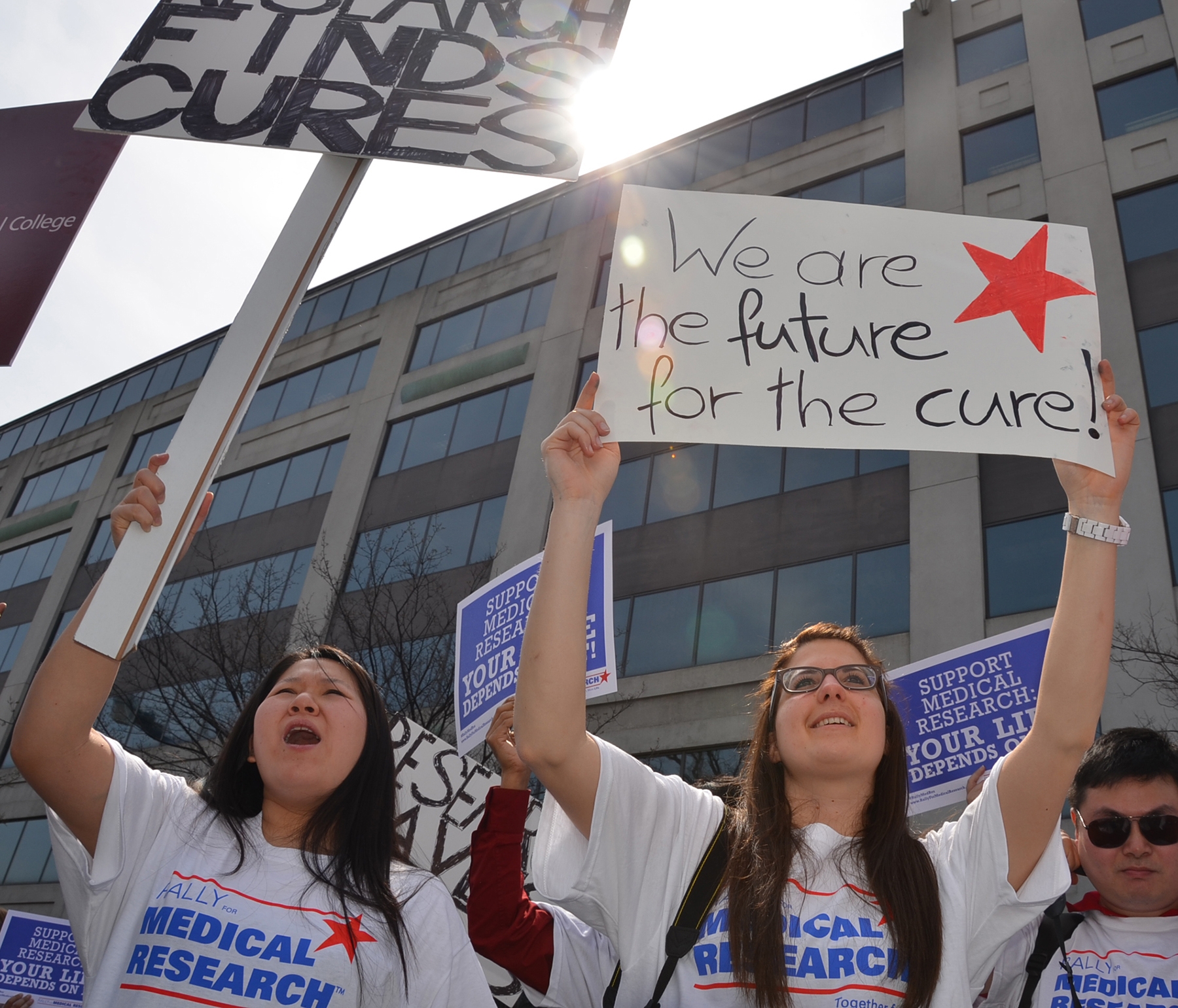Nearly two dozen faculty, students and postdoctoral associates from Weill Cornell Medical College joined thousands in Washington D.C. Monday, urging Congress to restore more than $2 billion in funding for the National Institutes of Health — without which medical advances and discoveries could be negatively impacted for decades.
"It's really important for us to have funding for all this research that goes on," said Will Smith, a graduate student at Weill Cornell who's pursuing a doctorate in cellular biology. "A lot of investigators are going to be hard-pressed if lawmakers cut the budget more. Research is vitally important, not only for the health of the nation, but also for our understanding of how things work."

Weill Cornell medical student Alisa Dong, left, expresses support for medical research with Manuela Passrugger, right, an intern in Dr. Stefano Rivella's lab.
Weill Cornell's contingent traveled with a group from Columbia University College of Physicians and Surgeons to march with thousands of people from nearly 200 organizations at the steps of the Carnegie Library for the Rally for Medical Research.
The rally, organized by the American Association for Cancer Research, strove to raise awareness about the critical need to sustain investment in the National Institutes of Health, the largest source of funding for medical research, to improve health, spur more progress and save more lives.
Participants carried signs proclaiming, "We are the future for the cure!" and "Research saves lives," and wore T-shirts with the mantra, "Rally for Medical Research, More Progress, More Hope, More Life," with a space to write in what or who they were rallying for — "A cure for cancer," "My dad," or "My son." They voiced support for the National Institutes of Health and medical advances made possible because of it, just as the first effects of the largest cut to federally-funded biomedical research in recent memory become known.
Dr. Monica Guzman, assistant professor of pharmacology in medicine at Weill Cornell, needs her federal research grant to develop therapeutic strategies for targeting leukemic stem cells. But as funding for the National Institutes of Health declined as mandated in the sequester, so has Dr. Guzman's grant, slashed by 10 percent.
Compelled to act, Dr. Guzman joined the united front with fellow members of the medical research community in hopes of effecting positive change.
"It's very motivating to see people like me making their voices heard," she said.
Following the rally, the Weill Cornell group listened to a legislative briefing with Chris Bigelow from the office of U.S. Rep. Nita Lowey, who represents Rockland and Westchester counties, and Reba Raffaelli, from the office of U.S. Rep. Charles Rangel, who represents parts of Manhattan and the Bronx. The legislative aides detailed the federal budget process, changes to funding as a result of sequestration and future budget expectations.
Weill Cornell's participants hope that their activities Monday change lawmakers' minds about the value of biomedical research.
"I hope that Congress is listening," said Tracey Van Kempen, a fifth-year graduate student in the neuroscience program at Weill Cornell. "I know that some members of Congress are listening."
Media outlets including USA Today, Nature News Blog and MSN.com covered the rally and featured some of Weill Cornell's participants, including Dr. Lorraine Gudas, chairman of pharmacology, and Smith.
Related Stories
Officials Tout Importance of Biomedical Research as Federal Budget Cuts Loom

